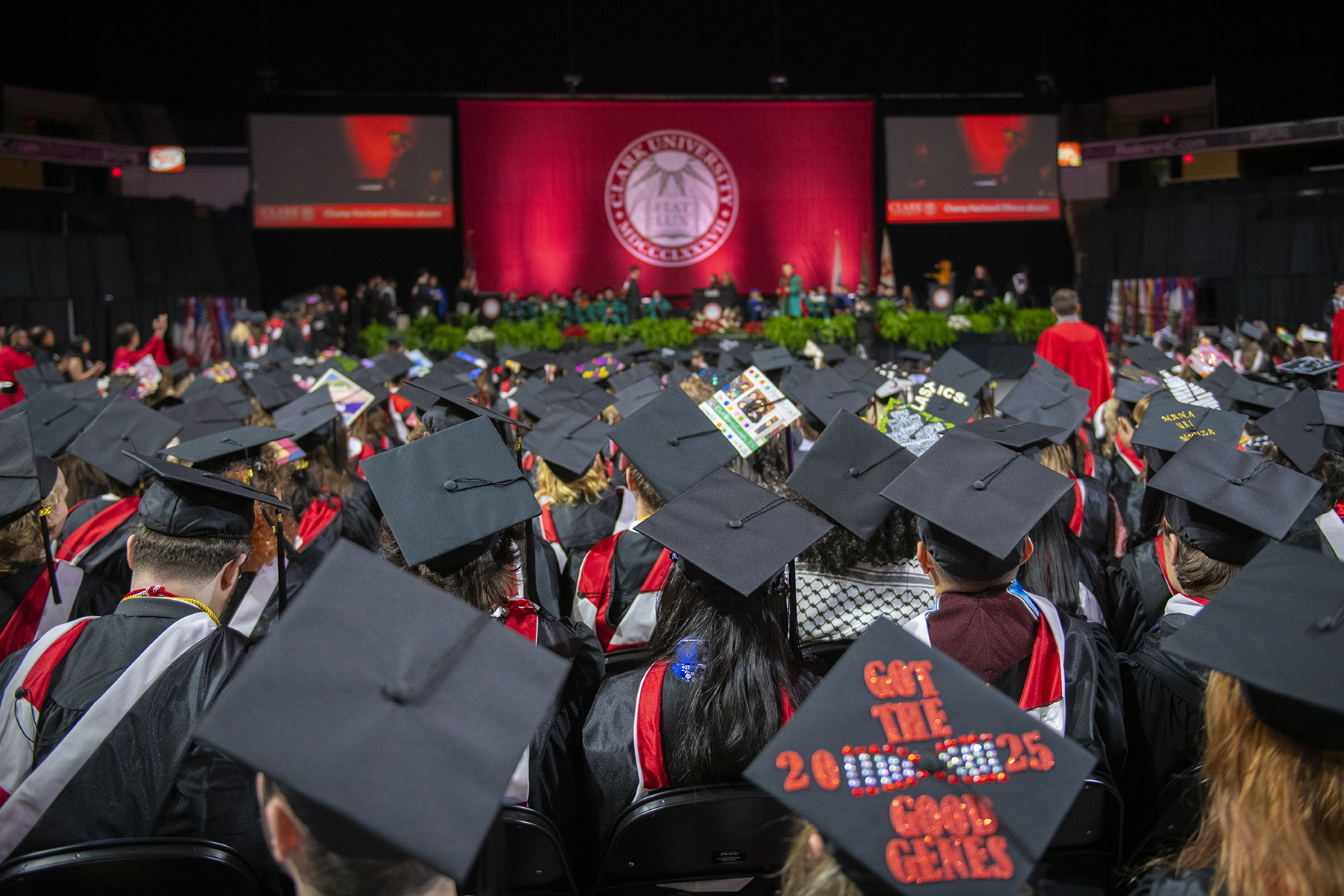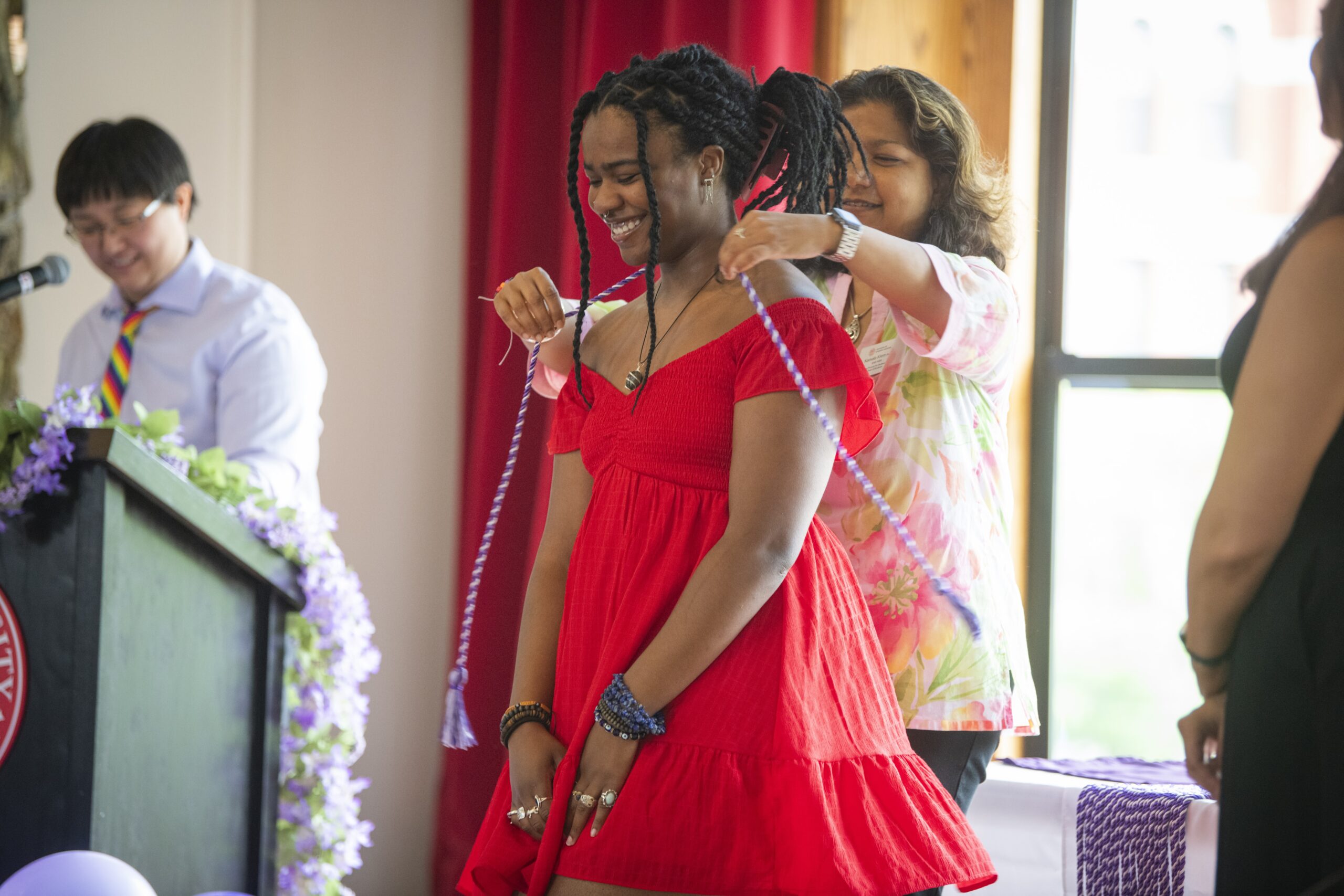Clark’s 121st Commencement Ceremonies on May 19, 2025, conferred 468 undergraduate degrees and 1,014 advanced degrees.
NPR journalist Ari Shapiro and Esther Duflo, a Nobel Prize-winning economist and the Abdul Latif Jameel Professor of Poverty Alleviation and Development Economics at the Massachusetts Institute of Technology, delivered speeches to graduate students and undergraduate students, respectively. Both spoke about the need for care and compassion in the world.
In addresses to their peers, Temera De Groot ’25 and Kumar Gaurav, MBA ’25, spoke about their journeys at Clark as first-generation college students. Relive the highlights of the day on this episode of Challenge. Change.
Challenge. Change. is produced by Melissa Hanson for Clark University. Find other episodes wherever you listen to podcasts.





